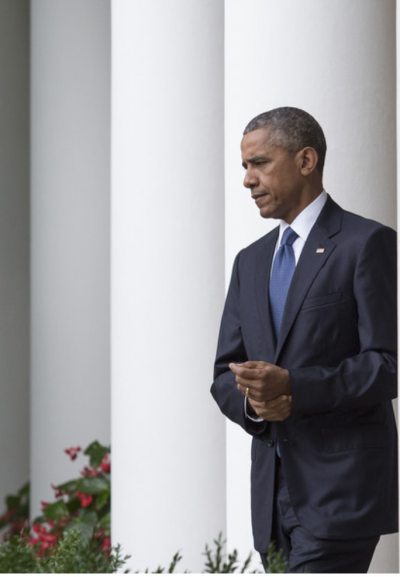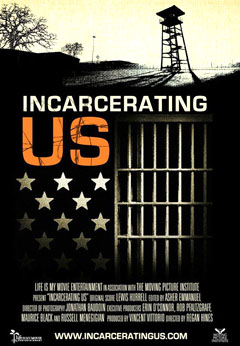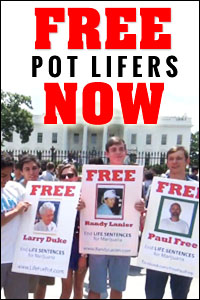CAN-DO President Amy Povah was interviewed by Buzz Feed and is quoted in the following article, as are two members of the CAN-DO Advisory Board, Dennis Cauchon, founder of The Clemency Report and Beth Curtis, founder of Life For Pot:
Obama’s Potential Clemency Push Can’t Come Soon Enough, Campaigners Say
by David Mack
Buzzfeed News Reporter
July 7, 2015

Andrew Angerer/Getty Images
Advocates who have long campaigned for clemency for federal inmates imprisoned for nonviolent drug offenses say they are thrilled that President Obama appears poised to commute dozens of such sentences. But they’re also frustrated with what they see as needless delays, both bureaucratic and political, that have slowed the pace of commutations.
These advocates also say Obama’s plans are only remarkable because of the timidity shown by recent presidents, including Obama himself, in wielding executive authority for one of its more controversial purposes. In recent decades, the president’s use of clemency has been tempered by political considerations, with the fear that granting clemency to a convict who reoffends could lead to a backlash.
“It’s preposterous to consider this revolutionary,” Dennis Cauchon, editor of the Clemency Report website, told BuzzFeed News of Obama’s clemency push. “It’s only revolutionary in the very limited context of what today’s American politics allows.”
Since he began his second term, the president has indicated his willingness to use his clemency power more frequently. In his first four years in office, Obama commuted only one sentence; since his re-election, he has granted 42 commutations.
In 2010, the president signed into law the Fair Sentencing Act. The law reduced the startling 100:1 disparity in sentencing between crack and powder cocaine offenses, which had long resulted in more black people receiving lengthier prison sentences. In addition to eliminating a five-year mandatory minimum for crack possession, the new law reduced the sentencing ratio from 18:1.
In January 2014, the Justice Department began asking defense attorneys to aid the administration in finding suitable applications for clemency from more low-level drug offenders. Under criteria set by the Department of Justice, federal inmates could apply if they were nonviolent offenders, had no significant criminal history, had served more than 10 years in prison, had good behavior records, and would have received more lenient sentences under the new sentencing guidelines.
It’s unclear exactly how many commutations the president is seeking to grant, or if the administration intends to focus on offenses involving specific drugs, such as crack.
Inmates seeking free legal assistance with their applications for clemency have applied to the Clemency Project 2014, which has sorted through more than 26,000 inmate requests to be assigned one of the group’s 1,500 volunteer lawyers.
With such a large number of petitioners, progress has been slow, and, until now, very few applications have actually made it to the president, according to the New York Times.
Amy Ralston Povah, founder of CAN-DO, a group that advocates for clemency, told BuzzFeed News some of the inmates she is in touch with have been frustrated with the lawyers assigned to them. One inmate who tries to call her attorney from prison can never seem to make contact, she said.
“The prisoners’ lives are in the hands of people who don’t care,” Povah said. “They don’t have any impetus. There’s no sense of urgency coming from some of the lawyers.”
Povah and other campaigners said they had urged prisoners to directly petition the Justice Department because of the Clemency Project 2014’s slow pace. Indeed, the DOJ has received more than 6,000 direct applications since the administration’s call for more went out, according to the New York Times.
Read more…
Obama’s Potential Clemency Push Can’t Come Soon Enough, Campaigners Say
Beth Curtis set up the website Life For Pot after her brother was imprisoned for life for marijuana trafficking. She told BuzzFeed News she supported the president granting clemency to those who received harsh sentences under the old crack cocaine laws, but hoped pot lifers would not be forgotten.
“I’m hoping for clemencies in the thousands,” Curtis said. “There is a little bit of skepticism because it’s been such a slow liftoff. It has been for everyone. We certainly hope that they will start rolling them out in grand numbers.”
Does she hope her brother is among them? “I hope my brother is the next one, of course.”
“It’s a kind of ache that doesn’t go away, to think that that happened to someone you love,” she said. “It’s very difficult.”
“Fifteen years ago today, I was released from federal prison after receiving a sentence commutation from President Clinton.” Amy Ralston Povah














